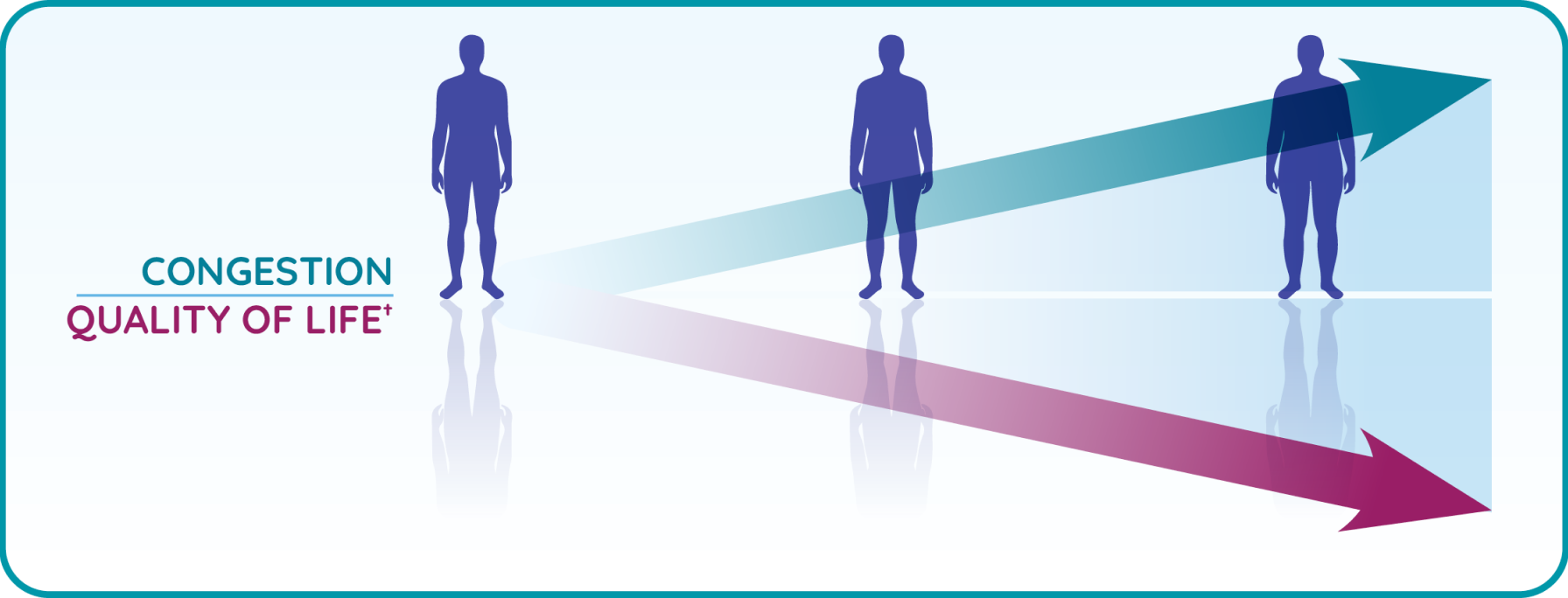IN HEART FAILURE, CONGESTION IS A FLUID SITUATION1
- Subacute, fluctuating, yet worsening signs and symptoms—like edema and dyspnea—may occur over several days to weeks2*
- Gut edema can reduce the intestinal absorption of diuretics, compromising bioavailability. This may necessitate the IV administration of diuretics, typically in a clinic or hospital3-5

*
A clinical study of hospitalized heart failure patients showed worsening dyspnea and edema on average 8 and 12 days prior to hospitalization (respectively).2
AS CONGESTION INCREASES, HEALTH-RELATED QUALITY OF LIFE† DECREASES8
- Signs and symptoms of congestion in patients with heart failure is a strong, independent correlate of quality of life8†
- Reducing congestion in an outpatient setting was independently associated with improved quality of life9‡

†
Kansas City Cardiomyopathy Questionnaire-12 overall summary scores, including quality of life assessment, were related to congestive signs and symptoms (partial R2 0.32).
‡
Based on a 5.1 (95% CI, 4.7-5.5) point improvement (P<0.001) in Kansas City Cardiomyopathy Questionnaire-12 overall summary scores for each 1-sign reduction in clinical signs of congestion.